
Lactation / Breastfeeding Continuing Education Bundle #8 (32.5 Hours)
Originally offered in 2020 at our GOLD Lactation Conference. Packed full of fascinating topics such as supporting families who are exclusively pumping, oxidation vs high lipase action in human milk, supporting the weaning process, persistent pain during breastfeeding, marijuana and breastfeeding, risk based language, normal infant feeding patterns and so much more!
It is an excellent resource suitable for all skill levels and is a perfect fit for IBCLCs, Lactation Consultants, Lactation Educators, Breastfeeding Counselors, Mother to Mother (Peer to Peer) Support Workers, Midwives, Physicians, Dietitians, Doulas, Childbirth Educators and anyone else working or studying within the maternal-child health industry. Explore the latest research, trends, new ideas and hot topics in the world of human lactation.


Mariana Colmenares Castano was born in Mexico City, and from an early age she was fascinated by animals and nature.She studied medicine at the National University of Mexico (UNAM), and foundher passion as a pediatrician doing her residency at the National Pediatric Institute. When her first child was born she witnessed the lack of knowledge and commitment to breastfeeding within the medical profession, and so she decided to specialize in breastfeeding medicine. She certified as a Lactation Consultant (IBCLC) in 2011.Mariana is a member of the International Lactation Consultant Association, the Academy of Breastfeeding Medicine, and a proud founding member of the National Lactation Consultant Association of Mexico (ACCLAM), where she served on the Board of Directors as Education Coordinator (2014-2019). She is part of board director for the Academy of Breastfeeding Medicine for a 3 year period (2019-2022) and recently named as secretary for the Academy of Breastfeeding Medicine. Mariana is a member of the team for Breastfeeding Country Index BFCI, a project from Yale University and Universidad Iberoamericana. She is consultant for the National Health Institute in Mexico and has collaborated with UNICEF in breastfeeding projects and part of the steering committee for the WHO. She has spoken at national and international conferences, co-published numerous articles and co-authored a chapter for the National Academy of Medicine. At the moment she is a Clinical Fellow in Community Paediatrics in London.
Topic: Breastfeeding The Baby With Congenital Heart Disease - [View Abstract]
Topic: Breastfeeding with Insufficient Glandular Tissue - [View Abstract]
Topic: Clinical Assessment and Management of Jaundice in the Newborn - [View Abstract]
Topic: Oral Colostrum Care as an Immunological Intervention in the NICU - [View Abstract]
Objective 1: Describe the theoretical framework that can give us useful information for a timely and appropriate diagnosis of Insufficient Glandular Tissue;
Objective 2: Demonstrate and support the best way possible for the dyad to achieve a healthful breastfeeding experience;
Objective 3: Apply useful tools that can help achieve the personal goals
Breastfeeding is the normative way to feed babies all over the world. We have access to a large amount of scientific evidence that supports it. Advocates of breastfeeding such as health care professionals that protect, promote and support the breast/chest feeding dyad can struggle sometimes with women or babies who cannot breastfeed as the World Health Organization suggests. Mothers with low milk supply are often supported by family, friends and health care with well meaning advice and remedies to help them do their best. Women who have insufficient glandular tissue (IGT) struggle with their milk supply, despite good breastfeeding management. It is common to see families with this issue during their second or third lactation failure without really understanding what might be going wrong. These babies can have dehydration in the neonatal period, hypernatremia or even death without anybody that could help with a correct diagnosis or help with achievable goals that can benefit both mother and baby. It is of great importance to help with accurate diagnosis that can also benefit psychologically and can help parents choose to continue breastfeeding with breast/ chest supplementation.
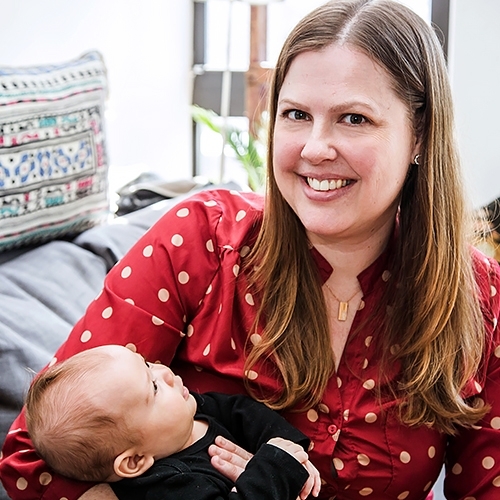

Annie Frisbie has been an IBCLC in private practice since 2011. Her background is in media, where she worked very closely with producers, content developers, and tech thought leaders on business strategy, content development, contracts, legal clearances, and more. She has also produced training for professional media software solutions as well as created and managed print and video content for media professionals.
In 2018 she was honored with the US Lactation Consultant Association's President's Award, "awarding those that demonstrate extraordinary service to the association and profession."
She is a produced screenwriter and proud member of the Writers Guild of America, East. She have a BA from Franklin and Marshall College, and an MA in Cinema Studies from New York University. In a previous life I was a film critic. I live with my husband and our two children in Queens, New York.
Topic: The Ethics of Digital Privacy and Lactation Practice - [View Abstract]
Objective 1: Define privacy as a general concept and as it applies to access and handling of digital information and describe the most common threats to privacy in the digital space. Includes comparison of large-scale global approaches to digital privacy, including HIPAA, GDPR, PIPEDA, and other national and regional legislative efforts.;
Objective 2: Explain why protecting digital privacy is both an ethical obligation and a key element of improving equity in the healthcare space and demonstrate the common ways in which health care providers may put patient/client privacy at risk, along with the consequences to both patient and health care provider.;
Objective 3: List specific action items that can be implemented immediately to protect the digital privacy of patients/clients.
As healthcare providers incorporate technological solutions into their practices, they also face the increasingly complex task of protecting the privacy of their patients/clients. Some countries have laws in place that healthcare providers need to understand and follow, but all healthcare providers regardless of practice setting have an ethical responsibility to maintain rigorous standards when it comes to digital privacy.
Because technology changes so rapidly, keeping up-to-date with privacy regulations proves challenging for both large institutions and solo practitioners. Lactation must also be concerned with the privacy of more than one entity while serving a patient base that may have already faced numerous privacy and consent violations during pregnancy and childbirth. By valuing the privacy of lactating persons and their children, legal, ethical, and moral obligations can be met, enhancing client/patient autonomy and improving self-efficacy.
This session provides a framework for understanding digital privacy and privacy threats, and offers resources for implementing policies and procedures that protect patient/client privacy.


Katrien Nauwelaerts graduated as a prehistoric archaeologist in 2005. She's the mother of three breastfed children and the administrator of the Dutch breastfeeding-website Borstvoeding Aardig, https://borstvoeding.aardig.be. Katrien worked as a volunteer breastfeeding-counsellor, provincial coordinator and training manager for the Belgian breastfeeding organisation Borstvoeding vzw between 2010-2014. Up tot 2018 she was the founder and president of Aardig Leven vzw, a non profit ecological organisation. In 2013 she became an IBCLC. Since 2013 she's working as a lactation consultant at her own private practice Borstvoeding Aardig. She became a nutritionist and a herborist in 2014. Katrien shares her experiences and knowledge on lactation consulting as a public speaker since 2014.
Topic: Breastfeeding and The Use Of Herbs - [View Abstract]
Topic: Young Mothers and Breastfeeding in Belgium - [View Abstract]
Objective 1: Compare the difference between the regular medical approach of breastfeeding problems and the more holistic solutions used in fytotherapy;
Objective 2: Explain how the use of herbs can support and sometimes even replace the more traditional clinical treatment of breastfeeding problems;
Objective 3: Describe the holistic approach of traditional breastfeeding problems.
The medical use of herbs is as old as mankind. In this lecture IBCLC and herborist Katrien Nauwelaerts explains the difference between the regular medical approach of breastfeeding problems and the more holistic solutions used in phytotherapy. Katrien Nauwelaerts explains how the use of herbs can support and sometimes even replace the more traditional clinical treatment of breastfeeding problems such as postpartum depression, low milk supply, oversupply, engorgement, breast infection, plugged ducts, mastitis, candidiasis, thrush, and Raynaud Syndrome etc.


Paulina is the mother of three multicultural Latino children and Project Director for Lifespan Local. Paulina earned her BS in Psychology from the Pennsylvania State University, a MS in Organizational leadership from the University of Denver and is completing her PhD in Health and Behavioral Sciences at the University of Colorado - Denver. Paulina has over 18 years of experience working with families with young children. As a Maternal Child Health specialist for Jefferson County Public Health, she developed a NICU follow-up home visitation program and the pediatric emergency preparedness plan, co-founded and coordinated the Conectando Network (former Adelante Jeffco), established community navigation and lactation support groups focused on the Latino Spanish speaking community, and lead other initiatives to support leadership and partnerships among communities and organizations. During the COVID-19 pandemic, she managed the new program Whole Community Inclusion to ensure the pandemic response and recovery implementation included health equity practices that recognize the needs and the strengths of priority populations in the county. Her areas of current work include promoting perinatal and infant mental health along the continuum of care; building community capacity to navigate health and education systems; facilitating organizational change to embrace linguistic and culturally responsive practices; and establishing community-placed participatory programs to strengthen communities. She likes to be with people, learn from and with others, and connect passions for meaningful work.
Topic: From the NICU to the home: mother’s experiences - [View Abstract]
Topic: Leadership Skills in Lactation: Make Extraordinary Things Happen - [View Abstract]
Topic: Liderazgo en Lactancia - Para Alcanzar Metas Extraordinarias - [View Abstract]
Topic: Nursing A Preemie, Perspectives For Lactation Supporters and Professionals - [View Abstract]
Objective 1: Identify opportunities and challenges to establish lactation in the NICU; ;
Objective 2: Analyze the role of feedings in the context of infant development and parental role attainment;;
Objective 3: Identify strategies to support lactation for families with children with special needs and in a variety of contexts.
In this presentation participants will learn about parents’ experiences with feedings in the NICU and continuation of lactation after going home, the importance of parent-child mutual-regulation and its implication in feeding success, strategies for lactation professionals to support the nursing relationship, and infant mental health concepts in relationship to feeding.
This presentation will include qualitative and quantitative data to broaden participants understanding of the context of lactation with a premature baby or a baby with special medical conditions. The participants will also receive information about multidisciplinary approaches and initiatives to support families with preemie babies.


Philip O. Anderson, Pharm.D., FCSHP, FASHP is a Health Sciences Clinical Professor of Pharmacy at the UCSD Skaggs School of Pharmacy and Pharmaceutical Sciences where he heads the course on drug information.
Dr. Anderson has lectured and published extensively on drug use during breastfeeding including in professional journals and textbooks, including original research on drug excretion into breastmilk. Dr. Anderson founded the LactMed® database, which is part of the National Library of Medicine’s Bookshelf. He continues to write LactMed® records and to expand the database. He has authored the medication appendix to the popular handbook, The Nursing Mothers' Companion. Dr. Anderson is the Pharmacology Editor of the professional journal, Breastfeeding Medicine, and writes a monthly column on medication use during breastfeeding for the journal. He has also been a consultant to the US Food and Drug Administration on the topic of drug labeling with respect to use during lactation.
Objective 1: List 3 factors that increase infant impact of a drug in milk;
Objective 2: List 3 strategies to minimize infant intake of drugs in milk;
Objective 3: List the infant age range of greatest risk for drug ingestion while nursing.
Many mothers do not breastfeed their infants, discontinue breastfeeding or fail to take medications while they are breastfeeding. The principles of drug passage into breast milk are well established, although not well known by many health professionals. This presentation will review the principles of drug passage into breast milk, medications and factors that can cause a risk for adverse reactions in breastfed infants and discuss how to choose the most appropriate medications for mothers who are breastfeeding their infants.
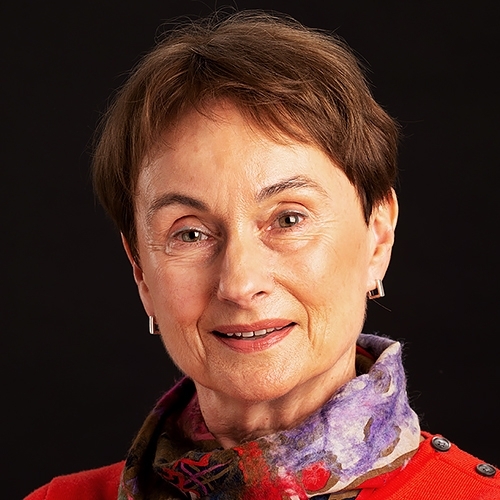

Jo Gilpin is a Registered Nurse, Midwife and has worked for many years as a Child Health Nurse with the Child and Family Health Service in South Australia (CaFHS). During this time she completed a Graduate Diploma in Health Counselling. She also studied Infant Mental Health at the University of South Australia. She became an IBCLC in 1996.
Her passion throughout has been educating, encouraging and supporting parents to have successful, enjoyable, breastfeeding relationships with their babies. This has been the main focus of her work.
She has worked privately as a Lactation Consultant since 2005. She has published two books, both on breastfeeding. Her most recent is 'Brilliant Breastfeeding: A Sensible Guide'. This was published in October 2018. This book aims to sensitively guide parents and future parents towards fulfilling breastfeeding relationships with up-to-date, evidence-based information. Attention is paid to the many challenges that parents face.
Jo loves what she does and never considers it 'work'. She lives with her husband on Kangaroo Island, which is just off the southern coast of South Australia. Her children and five grandchildren live in Sydney and Brisbane.
Objective 1: Describe ways women can get the very best information about their labor and birth options, particularly the advantages and of natural birth where possible;
Objective 2: Demonstrate awareness of the outcomes for mother and baby when medical interventions during labor and delivery are used unnecessarily;
Objective 3: Explain the relevance to breastfeeding longevity and success by mother and baby having skin-to-skin contact as soon as possible after baby's birth.
A baby’s birth can have a significant impact on breastfeeding outcomes. Medical intervention in normal birthing situations is rife, and globally cesarean rates have soared since 2000. Along with this, breastfeeding rates are less than ideal. A mother who feels a sense of grief about the birth of her baby is consequently more likely to face breastfeeding challenges. IBCLC’s, midwives and medical officers will often begin a breastfeeding consultation by listening to a mother’s unhappy perception of her baby’s birth. This aspect needs to be sensitively supported.
It is high time we take stock and pay more attention to what world health authorities are recommending to improve birthing and thus breastfeeding outcomes. These outcomes can affect a mother’s feelings of empowerment, her physical and mental health. Baby’s health and general development are statistically better when breastfed. There are significant financial savings made by reducing costs in various countries health systems when mothers breastfeed successfully.
There are definite changes we can make, following recommended guidelines and recent research. We can do this individually in our work and also in our affiliations with professional bodies by supporting and encouraging government policymakers and advocacy groups.
These are our future challenges.


Divya Sinha Parikh MD, IBCLC, FAAP is a board certified pediatrician practicing in Columbus, OH. She received her medical training at The University of Pittsburgh School of Medicine and completed her residency in general pediatrics at Rainbow Babies and Children’s Hospital at Case Western Reserve University. She formerly served on the Baby Friendly Hospital Initiative Committee at MetroHealth Hospital Systems in Cleveland, OH and created a breastfeeding medicine clinical rotation during residency. Within her practice, she has extensive experience managing lactation concerns and has taken a special interest in mentoring current and aspiring breastfeeding providers. She has presented her work at local and national meetings.
Topic: When Supply is Greater than Demand: Maternal Hyperlactation Syndrome - [View Abstract]
Objective 1: Define and explain the pathophysiology behind hyperlactation;
Objective 2: List the negative consequences of hyperlactation;
Objective 3: Demonstrate basic management of hyperlactation and indications for referral for medical evaluation.
The objectives of this lecture are to understand the definition, pathophysiology, and basic management of hyperlactation. Topics discussed will include proposed mechanisms leading to hyperlactation, health effects on mother and baby, and approach to diagnosis and management. Participants will learn key history and physical findings for hyperlactation, behavioral interventions to reduce milk supply, herbal and medical interventions to reduce milk supply, and will learn how to determine which dyads would benefit from medical intervention.
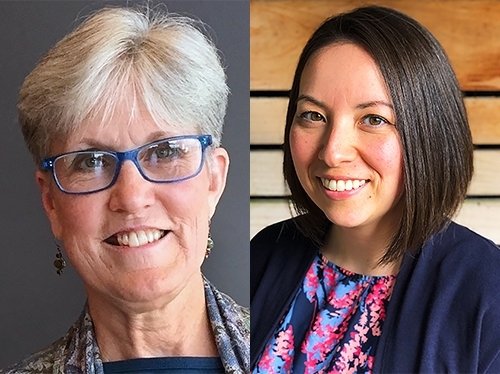

Dixie Whetsell, MS, IBCLC, has a Master’s Degree in Community Health Education from the University of Oregon. She began working with breastfeeding families in 1992 and became an IBCLC in 1998. She has worked as a lactation consultant in a variety of settings including private practice, county and state public health programs and high risk maternal and pediatric hospitals. She began teaching lactation training courses in 2003 and is currently an adjunct faculty member teaching in the Pathway 2 Lactation Training Program in the OHSU-PSU School of Public Health at Portland State University. She is a past presenter for the GOLD Perinatal Conference. She is an active member of the Oregon Washington Lactation Association, the US Lactation Consultant Association and the International Lactation Consultant Association. She was a founding Board Member for Northwest Mothers Milk Bank, a HMBANA non-profit donor milk bank.
Lisa Gonzales, BSN, RN, IBCLC earned her Bachelor of Science in Nursing from Linfield College. She started her nursing career as a Labor and Delivery nurse at a Level III OB hospital in 2006. After having her first baby, Lisa pursued lactation education and became an IBCLC in 2013. She made full career change in 2015 to become a lactation nurse in a high risk maternity and pediatric hospital, providing inpatient and outpatient consults to growing families. She is an active member of the Oregon Washington Lactation Association, the US Lactation Consultant Association and the International Lactation Consultant Association. Lisa currently helps families during in-home visits with her private practice.
Objective 1: Define what lactation anaphylaxis is, what the common symptoms are and when it is most likely to occur;
Objective 2: Describe common treatments for this condition and options for long-term medical management of this condition;
Objective 3: Discuss how this condition can impact the breastfeeding relationship and how an IBCLC can best support a breastfeeding parent that experiences this condition.
This case describes a 32-year-old primiparous woman who experienced an anaphylactic reaction associated with breastfeeding and milk expression on postpartum day four. With each episode her symptoms worsened and she developed hives, edema and difficulty breathing and swallowing. She had to be treated for her anaphylactic reaction in a hospital ER and ICU and she was released on postpartum day five on antihistamines.
Lactation anaphylaxis is a very rare condition that was first reported in the scientific literature in 1991. Since then there have been 11 other reported cases. Lactation anaphylaxis can be life-threatening and symptoms can include a rash, hives, edema resulting in difficulty breathing or swallowing, a dangerous decrease in blood pressure and a loss of consciousness. We will review this case and do a brief review of the previous case reports. We will discuss the possible causes for lactation anaphylaxis, the related risk factors, common treatments and possible breastfeeding outcomes. In most cases with proper treatment and management breastfeeding and milk expression can continue. Enhanced awareness of and knowledge about this rare condition will allow lactation consultants and other members of the health care team to better support breastfeeding parents who experience lactation anaphylaxis.


Ted Greiner received a PhD in nutrition for developing countries from Cornell University. For 19 years he worked as nutrition advisor for the Swedish International Development Cooperation Agency, based at Uppsala University where he was Associate Professor of International Child Health, helping to ensure their long-term support for IBFAN and WABA. Dr. Greiner was Professor of Nutrition at Hanyang University in South Korea for seven years. He has consulted for UNICEF, World Bank, FAO and others. He is now retired and edits the journal World Nutrition. He has lived in 8 countries and worked in 10 more. His areas of research expertise include infant feeding and programs to combat vitamin A, iron and iodine deficiency. In the 1970s, he did the first scientific work on the impact of baby food advertising on breastfeeding patterns. His PhD dissertation was on the planning and evaluation of a 1978-81 project to protect, support and promote breastfeeding in Yemen (terminology quickly adopted by UN agencies). Over the next decades, the duration of breastfeeding there doubled. During the planning the Innocenti meeting, he represented Sida, one of the 4 agencies involved. He was active in changing how WHO viewed HIV and infant feeding. He has over 100 breastfeeding-related publications.
Delegates will be able to:
1: Discuss the scientific literature on alcohol's effects on breastfeeding and ways in which alcohol exposure may affect infants
2: Rate the quality of advice on alcohol consumption during breastfeeding by health professionals and organizations
3: Interpret the scientific literature on this and other issues
Moderate alcohol use by breastfeeding women appears to be relatively common. Alcohol concentrates in breast milk at levels similar to maternal blood, peaking at 30-60. Most studies find no link with the duration of breastfeeding. However, seven studies have found a link with a shorter duration of exclusive breastfeeding. Alcohol affects oxytocin release, leading to reductions in breast milk consumption in the following hours and reduces infant sleep, both temporary if the mother does not continue to drink. These effects on the infant and the breastfeeding process could be interpreted by mothers as signs of infant dissatisfaction with their breast milk, “insufficient milk,” or other causes for premature supplementation. Chronic alcohol consumption may have a number of more serious effects, including on infant development, but research is limited. Younger infants tolerate alcohol worse, so abstention or avoidance of infant exposure for the first months of breastfeeding may be wise. Messages to mothers on this issue are conflicting, confusing and often outdated. Too little is done to teach mothers how to reduce infant exposure. Research is needed in different cultures into whether various forms of cautionary messages are likely to discourage breastfeeding.


Chauntel Norris is a native of Birmingham, AL. She attended the University of Alabama at Birmingham where she earned her B.A. in African American Studies & her B.S. in Psychology.
Chauntel is a DONA trained Birth & Post-Partum Doula, a Lamaze trained Childbirth Educator and a Certified Lactation Counselor.
She is the Co-founder of Baobab Birth Collective and currently serves as the Mother's Milk Initiative Coordinator for the Alabama Prison Birth Project.
Chauntel is the mother of two brilliant children Amaiya and Ozell.
Objective 1: Discuss the unique specifics of female incarceration;
Objective 2: Describe program development and discuss examples;
Objective 3: Explain the impact of incarceration on breastfeeding.
During this presentation the barriers of incarceration as it relates to lactating parents will be discussed. An overview of Program development, Partnerships development and working with corrections will also be considered. I will also show how our Alabama initiative combats those barriers and allows incarcerated women to be able to provide their milk to their infants.


Wilai Rojjanasrirat, PhD, RN, IBCLC, FILCA, FAAN is a Professor and Director of Research and Scholarship at Graceland University’s School of Nursing in Independence, Missouri. Her background is in midwifery and maternal and child health nursing.
She is an international board certified lactation consultant. She earned her Bachelor’s in Nursing and Midwifery from Thailand and Master’s and Doctorate and Post-Doctorate in Nursing from the University of Kansas. She teaches in graduate nursing program. Her research focuses on promoting and supporting breastfeeding, psychometric development, and educational outcome evaluation.
Using telehealth in providing lactation support, evaluation of the breastfeeding outcomes among late-preterm, near term, and term infants, and evaluation of the Business Case for Breastfeeding Program’s impact among employed breastfeeding mothers in Kansas are among some of the research projects.
Dr. Rojjanasrirat has multiple publications and recently contributed to a book chapter on Employment and Breastfeeding in Wambach & Spencer, Breastfeeding and Human Lactation, 6th edition in 2021. She served as a former president of the Pi Eta Chapter of the Nursing Honor Society, a board member of the KC Board of Directors of Kansas City, Kansas, and a former president of the Greater Kansas City Lactation Consultant Association for several years.
Topic: Understanding Lactation-Related Research - [View Abstract]
Objective 1: Describe basic research and its application to clinical practice;
Objective 2: Differentiate major characteristics between quantitative and qualitative research;
Objective 3: Identify basic steps in quantitative research studies.
Evidence-based practice directly influences and drives day-to-day clinical practice in the current healthcare environments. Lactation consultants need to keep up to date with research evidence for best practice. Although the primary goal of lactation providers is to provide optimal lactation care to breastfeeding mothers, it is necessary to know how to apply appropriate evidence to use on a regular basis by understanding research process and how to read research articles. The purposes of this presentation are to present basic concepts related to conducting and understanding lactation related research including quantitative and qualitative research methods. In addition, the presentation also will cover the guides to reading scientific research articles. The participants do not require extensive or advanced medical or research methodological knowledge to attend this workshop. Some breastfeeding research papers including case studies, clinical trials, and qualitative research will be used as examples.


Carlos González was born in Zaragoza, Spain, in 1960. He is married and is the father of three children. In 1983 he graduated in medicine at the Autonomous University of Barcelona, and between 1984 and 1987 he studied pediatrics at the Hospital of Sant Joan de Déu in that city.
He is founder and president of ACPAM (Catalan Association for Breastfeeding) since 1991. Since this association he has directed and taught in more than 100 courses on breastfeeding for health professionals.
He is the author of several books, including My child won’t eat, Kiss me!, and Breastfeeding made easy.
He has lectured for professionals or general public in Germany, Andorra, Argentina, Austria, Bolivia,
Chile, Colombia, Costa Rica, El Salvador, Spain, United States, France, Greece, Guatemala, Honduras, Ireland, Israel, Italy, Luxembourg, Mexico, Panama, Paraguay, Peru, Poland, United Kingdom, Dominican Republic, Russia, Uruguay and Venezuela.
Since 1994, he has been a regular contributor to Ser Padres magazine , where he attends a nursing and child feeding office. He has also collaborated with other publications, such as the magazine Tu Baby, Mente Sana, Lecturas, the disappeared Solaica and the newspaper in Catalan Ara.
Objective 1: Discuss the variability of child growth;
Objective 2: Explain the use of the less used charts: growth velocity, weight for height, BMI;
Objective 3: Describe the usual pitfalls in growth assessment.
Inappropriate use of growth charts can cause familiar anxiety, unnecessary supplementation, early weaning, unnecessary testing and force-feeding. With half of the population below the mean, at least a 3% of the average weight of people are (and have to be) under the third percentile. Percentile lines are mathematical constructions, and do not represent the actual growth patterns of individual babies.


Dr. Sharon Unger comes from the East Coast of Canada and is a neonatologist at Sinai Health System in Toronto, Canada. She is a co-primary investigator for the Canadian Institutes of Health Research funded OptiMoM and MaxiMoM programs of research as well as the medical director for the Rogers Hixon Ontario Human Milk Bank. Her research interests are primarily in the use of human milk for the high risk neonate and its long term impact.
Delegates will be able to:
1: Discuss the differences between mother's milk and human donor milk
2. Discuss the scientific evidence behind current human donor milk usage guidelines
3. Discuss some of the ethical considerations in human donor milk use
Mother’s milk is the unequalled nutritional source for the preterm or medically fragile neonate. Beyond its nutritional impact, it contains a myriad of bioactive molecules that are of particular health importance for the sick neonate. A majority of mothers who are pump dependent with an infant in a neonatal intensive care unit have an incomplete supply of their own milk. In this instance, human donor milk is an important supplement to have available while the mother is supported to increase her own milk supply. This lecture will focus on various aspects of the use of human donor milk including a review of the differences between mother’s milk and donor milk and the current methodologies used for processing donor milk. Recommended clinical guidelines will be discussed that are based on the evidence for short and long term health outcomes following the use of donor milk in the neonatal period. Future considerations will be explored including ethical issues with respect to donor milk use.
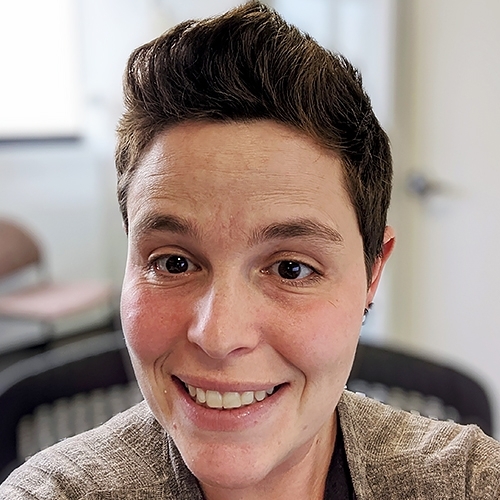

Rebecca LR Powell, PhD, CLC is an Assistant Professor in the department of Medicine, Division of Infectious Diseases, at the Icahn School of Medicine at Mount Sinai Hospital. Currently Dr. Powell is analyzing the phagocytosis responses of various cell types to better understand the effects of phagocytosis receptor profiles and the impact of antibody specificity on the elicitation of biologic function. Additionally, Dr. Powell is studying the contribution of breast milk leukocytes to the relatively low rate of HIV transmission in infants exclusively breastfed by their HIV-infected mothers. She received her PhD in Microbiology from the Sackler Institute, New York University School of Medicine, and her CLC from the Healthy Children Project.
Objective 1: Explain how breast milk is both a vehicle for mother-to-child transmission of HIV and also protects against transmission;
Objective 2: List the cellular components of human breast milk;
Objective 3: Describe how maternal cells can be isolated from breast milk and used for analysis of their anti-viral functions.
Unless access to clean water and appropriate infant formula is reliable, the World Health Organization does not recommend HIV-infected mothers stop breastfeeding. Remarkably, only about 15% of babies exclusively breastfed by their HIV-infected mothers become infected with HIV. This suggests that although breast milk is a vehicle for HIV transmission, the milk itself exhibits a strong protective effect against infection. Breastfed babies ingest 100,000 - 100,000,000 maternal cells every day via breast milk; what remains largely unclear is the contribution of these cells to the milk’s anti-viral qualities. A large study has been undertaken to isolate cells from human milk in order to measure the ability of these cells to engulf and destroy HIV by a mechanism known as phagocytosis. Over 50 samples of breast milk obtained from healthy women have been analyzed. Phagocytosis of HIV was detected in all samples. Activity did not appear to correlate with stage of lactation. Various cell types known for phagocytic capacity were identified and measured, including granulocytes, monocytes, macrophages, and dendritic cells. All samples exhibited strong granulocyte activity.These data further demonstrate that phagocytosis of HIV by immune cells from breast milk can be measured. This information will be critical for design of therapeutic vaccines capable of reducing the likelihood of mother-to-child transmission of HIV in areas where breastfeeding is essential.


A Canadian living in France for more than 25 years, Juanita discovered breastfeeding with her three children and has never looked back.
She became a La Leche League Leader in 1997, and served on the boards of LLL France 2004-2008 and LLL Europe 2011-2018. She has been the regional representative of LLL Europe to WABA since 2007. Juanita became a lactation consultant in 2003 (IBCLC), recertifying in 2008 and 2013.
Juanita was the coordinator for the Journée Internationale de l’Allaitement (‘JIA’ – International Breastfeeding Conference for health professionals organized by LLL France) in 2003 and 2008. She helped create and implement the Peer Counsellor Programme in France (Programme relais allaitement- Prall).
The WHO Code is one of her passions! She has spoken on the Code at conferences around the world. Member of the Coordination française pour l’allaitement maternel (CoFam) since 2007, she was head of the Task Force on the Code and ethical questions. As a member of IBFAN *and GIFA, she was given the opportunity to participate in international meetings of the Codex Alimentarius and the OECD in Paris, as well as in week-long IBFAN conferences in Montecatini, Italy in 2007, and in Geneva in 2008. She also attended the Committee on the Convention on Rights of the Child in Geneva for IBFAN and helped prepare a country report on France underlining the importance of breastfeeding and the need to apply the Code (2009). She is an active member of IBFAN’s Global Working Group on Contaminants in Breastmilk. In 2018, she represented LLLI at the second NetCode meeting in Geneva.
Objective 1: Cite three key international documents directly referring to the International Code;
Objective 2: Define the products now considered to be breastmilk substitutes according to the Guidance on the inappropriate promotion of foods for infants and young children.;
Objective 3: Describe conflict of interest with industry as defined by the Code and cite three specific types of conflict of interest.
The International Code on the Marketing of breast milk substitutes is the very cornerstone of breastfeeding protection, promotion and support, and an integral part of infant and young feeding policies around the world; yet it is often misunderstood or considered to be an out of date document with little relevance to breastfeeding issues today. Nothing could be further from the truth. The Code is updated regularly with additional resolutions voted at World Health Assemblies every two years, and covers far more than the marketing of breast milk substitutes in the first six months of life, but promotes optimal nutrition practices up to 36 months, and addresses conflict of interest with infant food companies. Indeed, the rapidly growing global market of breast milk substitutes, estimated at more than $70 billion in 2019, continues to undermine breastfeeding through its evermore aggressive and omnipresent marketing techniques, focused on parents, health professionals and health systems. The stakes are high – understanding and implementing the Code is an essential step towards ensuring optimal nutrition for infants and young children, whether breastfed or formula-fed.


Bryna is a lactation consultant, mentor, educator, and birth doula in the Pacific Northwestern United States. They are active in their community as an advocate for mutual aid, reproductive justice, and reduction in barriers to care. They also own and manage an inclusive private practice. As a member of both Queer and Neurodivergent communities, offering inclusive care on every level is very important to Bryna. Their vision is to offer information and tools to providers to build a community of comprehensive, concordant, and individualized care for all families in the perinatal period.
Topic: Breastfeeding With Ease: The Impact of Infant Reflex Emergence and Integration - [View Abstract]
Topic: Rhythmic Movement for Breastfeeding Function - [View Abstract]
Objective 1: Identify the impacts of movement on development and learning ;
Objective 2: Describe the reflexes that are present in the infant feeding response and explain their normal expression and expected function;
Objective 3: Discuss the impacts of trauma and modern barriers to reflex integration and address opportunities to help mitigate them;
Disorganized or absent infant reflexes can create challenges for breastfeeding/chestfeeding. This presentation takes a close look at the role of movement in the integration of disorganized infant reflexes and the use of rhythmic movement as a method for overcoming infant feeding challenges. This talk also covers socio-cultural impacts of trauma, lack of opportunity for movement, and modern care system barriers to reflex integration.


Duncan Fisher promotes and develops support for parents to advance child health and development. In the last year he has been working with breastfeeding researchers across the world and with the World Alliance for Breastfeeding Action to advance the idea of "breastfeeding as teamwork", following striking findings from research of the high gains from engaging with fathers and other family members. In UK he co-founded the Fatherhood Institute and for three years he served on the Board of the Government’s gender equality body, the Equal Opportunities Commission. He manages the website, FamilyIncluded.com, where all recent research on breastfeeding and fathers/families is reported. He initiated and currently manages a website for Cambridge and Princeton Universities reporting research on child welfare and development, ChildandFamilyBlog.com. He was awarded an OBE by the Queen in 2008 for his “services to children”. Duncan lives in Wales and divides his time between family work and work to support sustainable economic development in his home country.
Objective 1: Describe the evidence about the influence of fathers on breastfeeding;
Objective 2: Discuss evidence-based principles for engaging fathers to support breastfeeding;
Objective 3: Explain how the support of fathers and the autonomy of mothers can be combined through teamwork;
Breastfeeding programmes that engage fathers are more effective than ones that only involve mothers and professionals. This accords with research that has shown that family is the main influence on breastfeeding. The way that families influence breastfeeding is diverse, depending on the make-up of the family, local culture and location (e.g. urban/rural). The influence of fathers is not necessarily intentional, but what fathers think and do influences the situation in almost every situation. In this presentation I will describe the principles of success that have been learned from programmes with published evaluations. These principles can be summed up in the phrase recently adopted by the World Alliance for Breastfeeding Action, "breastfeeding is teamwork".
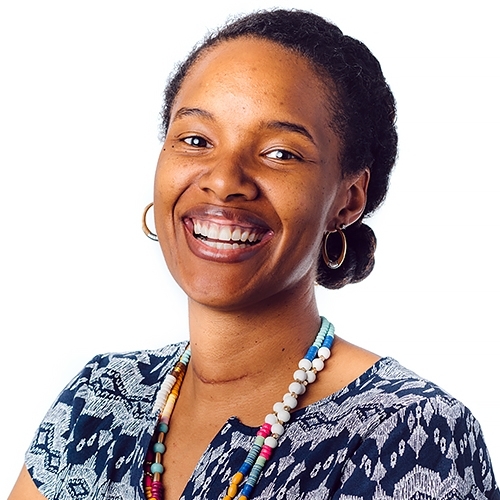

Nikki Hunter Greenaway is a board-certified family nurse practitioner and internationally board-certified lactation consultant in New Orleans, Louisiana. In 2011, she founded Nurse Nikki Family & Maternity Services, a health consulting firm where she educates and counsels women, families, schools and businesses about pregnancy, birth, postpartum, breastfeeding, and new baby care. October 2018 she opened Bloom Maternal Health, a women’s health clinic that provides prenatal counseling and postpartum recovery care. Nurse Nikki is the co-founder of Louisiana’s first free-standing infant feeding clinic, the New Orleans Breastfeeding Center. She also co-created Café au Lait Breastfeeding Circle for Families of Color and Nikki & Nikki Lactation Career Consultants two important resources needed to improve breastfeeding outcomes specifically in the Black community. Nikki is a wife and mother of 3 mini breastfeeding activists.
Objective 1: Identify barriers breastfeeding mothers experience in regards to intimacy;
Objective 2: Explain the relationship between prolactin, oxytocin and estrogen and how it relates to physical and mental sexual arousal;
Objective 3: Describe resources and counseling techniques consultants can use to provide support;
Lactation consultations delve into perfecting a latch, maximizing milk supply and even recovering from giving birth. Very few visits discuss how breastfeeding can affect intimacy. The research on breastfeeding and intimacy is scarce and the assessment tools and evidence-based solutions are almost nonexistent. Perinatal providers often don’t recognize the relevance or have time to troubleshoot the inquiries. Lactation specialists understand that the situation exists but may not know how to approach the line of questioning or how to provide solutions. This webinar will illustrate the relationship between lactation-specific hormones and sex hormones. It will present the mental and physical struggles that families face when tackling the topic of returning to intimacy when breastfeeding. Providers and lactation consultants will receive recommendations on how to approach, assess and assist in resolving clients’ perceptions and concerns surrounding breastfeeding and intimacy. Discussion will offer web resources and how to add the topic into community resources.


Sejal is an International Board Certified Lactation Consultant (IBCLC) in private practice and an infant massage educator in Hillsboro, Oregon, USA. She combines her professional expertise with her personal instincts as a mother and a supportive team member.
She holds a Bachelors in Microbiology and Clinical Laboratory Science.
She also brings with her the following comprehensive toolkit: Certified Educator of Infant Massage, Formerly Certified in skin-to-skin care for full term infants from the United States Institute of Kangaroo Care Certified Provider of Innate Postpartum Care.
She has presented nationally and internationally for GOLD lactation, ILCA, community colleges, local lactation organizations.
As a lactation consultant, she believes that every individual needs to be educated about breast health, optimal infant feeding and how breastfeeding support is a basic human right and can impact world health globally.
She strives to help each family by continuing to learn all she can about breast health, breastfeeding ecology, breastfeeding movement and parent-infant connection using the neurobiological and infant mental health lens.
When she’s not with her clients, you can find her at home in Hillsboro, Oregon, USA, listening to bollywood music, hanging out with friends and spending time with her family.
Topic: Calm & Regulated: Rethinking Our Approach to Latch and Positioning - [View Abstract]
Topic: Teaching Infant Facial Massage to Parents to Support a Functional Latch - [View Abstract]
Delegates will be able to:
1: Describe to teach parents how to use facial massage as a therapeutic tool
2: Discuss with parents parents the value of attunement and engaging with their baby
3: Use facial massage to deliver messages to a baby’s nervous system and increase facial movement
Background: The benefits of massage have been shown in many research studies. Massage relieves stress, pain and muscle tension. We expect to show that the same benefits can be achieved when facial massage is used to optimize a baby’s oral structures to support a functional latch.
Method: We hope to use facial massage as a tool for babies that do not have an optimal latch. Babies born with gestational constraints, traumatic birth, exposure to stress during pregnancy or babies with tethered oral tissues may benefit from a parent massaging their face. Attendees will have access to handouts and a video link and may use their own face to practice the facial massage strokes.
Results: Building strength by oral and facial muscles, relaxing tension in the jaw, the lips, the muscles around the lips, and muscles of facial expression may help optimize the latch and hence prevent nipple damage.
Conclusion: IBCLCs can have an extra tool in their toolkit to offer to new parents. Facial massage techniques to support a functional latch can increase a parent’s confidence in caring for their baby, while increasing the levels of oxytocin and thereby promoting parent-infant bond


Sonia Semenic is an Associate Professor at the Ingram School of Nursing, McGill University (Montreal, Quebec, Canada) and a Nurse Scientist at the McGill University Health Center. After many years of experience as an IBCLC and Clinical Nurse Specialist in maternal-child health, Sonia completed a PhD in Nursing and postdoctoral training in community health. Her research aims to better understand the process of knowledge translation (KT) in perinatal health, with a particular focus on the implementation of evidence-based practices to protect, promote and support breastfeeding. She currently co-leads the Knowledge Translation Platform for the Quebec Nursing Intervention Research Network, and teaches graduate courses on knowledge translation in nursing practice.
Topic: Moving from Evidence to Practice: Knowledge Translation and Breastfeeding Support - [View Abstract]
Delegates will be able to:
1: Describe the concepts of ""Evidence-based Practice"" and Knowledge Translation
2: Identify key factors influencing knowledge translation in health care
3: Discuss strategies to facilitate the implementation of evidence-based practices in lactation support
Despite irrefutable research evidence for the benefits of breastfeeding, less than 37% of infants worldwide meet WHO targets for optimal breastfeeding. Persistently low breastfeeding rates are due in part due to poor uptake of breastfeeding best-practice guidelines, such as the Baby-Friendly Hospital Initiative. The growing field of knowledge translation in healthcare reveals that it takes from 8-30 years for research findings to be adopted into clinical practice, and that up to 45% of patients don’t receive evidence-based healthcare. This presentation aims to help those providing lactation support to better understand the complexity of factors influencing the use of evidence in practice, as well as what can be done to facilitate the uptake of best practice guidelines to protect, promote and support breastfeeding. Whether or not care providers follow evidence-based practices is influenced by the nature of the evidence (e.g., perceived relevance of the evidence), characteristics of the care providers (e.g., motivations to change practice) as well as characteristics of the care environment (e.g., leadership support for change). Successful strategies for supporting practice change are tailored to local barriers and facilitators to evidence use, and can be informed by the growing number of theoretical models and frameworks for KT in healthcare.


Tomoko Seo is a pediatrician and IBCLC in Japan, working in a private clinic with colleagues including IBCLCs who practice's general pediatrics and breastfeeding medicine. She became certified as an IBCLC in 1999 and recertified in 2004, 2009, 2014 and 2019. She is a member of the Japanese Association of Lactation Consultants (JALC) since 1999, when it was founded. JALC has been holding conferences several times a year, including the “Annual Breastfeeding Seminar for Physicians” since 2005 to provide breastfeeding education to physicians and improve breastfeeding support among physicians. Tomko has been a member of the Academy of Breastfeeding Medicine (ABM) since 1999. She is also an active member of the International, Protocol, Education, Conference, Membership Committees of ABM.
Objective 1: Describe the importance of breastfeeding education for physicians;
Objective 2: Identify the significance of successful breastfeeding experience for physicians;
Objective 3: List educational opportunities and materials for physicians to protect, promote and support breastfeeding around participants;
Breastfeeding facilitates good health in infants and mothers, and for all humans throughout life. Medical professionals should be advocates for breastfeeding, and physicians could be one of the most influential advocates. However, many medical students, residents and physicians have very limited opportunities to learn about breastfeeding and human lactation during their medical education.
From another point of view, breastfeeding is a private experience as well as a scientific matter. If a physician or a partner successfully breastfeeds, she/he may become a more effective advocate for breastfeeding. So, it is imperative to provide medical students, residents, and young physicians with education about breastfeeding and to enable them to experience successful breastfeeding personally, in order for them to promote and support breastfeeding among their patients.
The Academy of Breastfeeding Medicine is an international organization of physicians who protect, promote, and support breastfeeding, and one of its goals is to develop and disseminate the standard for physician education around breastfeeding and human lactation. ABM has developed protocols and statements for health care providers to utilize for breastfeeding management.
The WHO/UNICEF revised Ten Steps to Successful Breastfeeding in 2018, includes in Step2 “Ensure that staff have sufficient knowledge, competence and skills to support breastfeeding”. This included physician education. There are many ways to educate physicians, and ABM materials could be one option.


In 2014, Ghanaian-American mother and photographer, Vanessa Simmons authored the Normalize Breastfeeding™ movement to address the taboo of public breastfeeding in modern society. Her mission was to document diverse variations of normal infant feeding, across cultures and delivery methods of human milk.
Through Simmons' viral blog, her photographic speaking tour, philanthropy, and artistic inspiration; she mobilized and motivated thousands of women to share their breastfeeding photos on social media. After a very successful first year, she reached out to the Mayor of San Diego to proclaim June 27th the International Day to Normalize Breastfeeding, in support of the worldwide anniversary event!
Lactation educator and activist, Vanessa Simmons, is now speaking out at conferences and events across the country to eliminate general miseducation around the topic. On the Normalize Breastfeeding podcast, she interviews guests about experiences, advocacy, and activism within the infant feeding community worldwide.
As a public speaker, Simmons is focused on transforming the modern mindset around the natural, yet difficult task of breastfeeding. Vanessa trains lactation professionals to better understand and connect with millennial families online. She creatively motivates and inspires families to be mindful that this is a time to be cherished, and although fleeting, it is also a time to reinvent what will be acceptable for feeding generations of the future.
Simmons is an aspiring author and resides with her supportive husband and three children in San Diego, CA.
Objective 1: List two types of media to capture stories;
Objective 2: Recite three important steps to capturing WIC stories;
Objective 3: Assess which social platform is best for their availability and posting style;
Many studies from around the world show that supporting moms on their journey can help them to successfully breastfeed and reach their personal feeding goals. Today we see many lactating parents go online through various social media platforms in search of support. Vanessa Simmons uses storytelling and humor to share her own support experiences and explains why creating social media support for millennial families liberates them from the on-going pressures around breastfeeding.
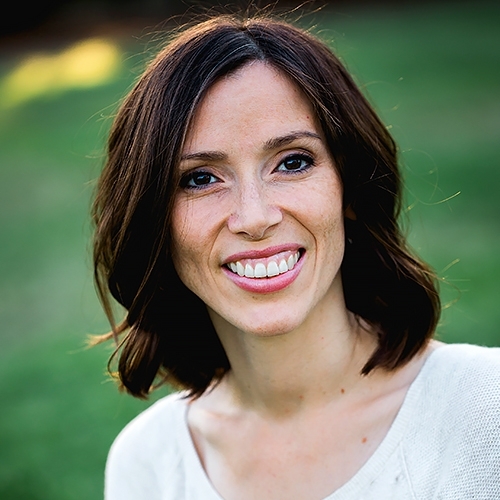

Dr. Jessie Young is a Pediatric Chiropractor near Olympia Washington who works closely with other healthcare professionals to provide comprehensive and collaborative care. She has specialized education in treating breastfeeding difficulties and is near completion of her IBCLC certification. As part of a family's health care team, Dr. Young helps resolve musculoskeletal issues causing breastfeeding difficulties including neck tension, TMJ dysfunction, torticollis, and painful latch. She also provides pre and post-frenotomy care for musculoskeletal issues contributing to tethered oral tissue. Providers, parents and patients rely on Dr. Young for her comprehensive diagnostic and treatment approaches, including modified chiropractic adjustments, myofascial release, therapeutic exercise, and craniosacral techniques. Dr. Young currently volunteers to promote literature contributions and advancement as the Research Chair for the American Chiropractic Association Council on Chiropractic Pediatrics.
Delegates will be able to:
1. Evaluate for musculoskeletal issues that can interfere with successful breastfeeding
2. Identify indications for co-management and/or referral
3. Communicate with parents and other providers the safety and effectiveness of manual therapy for breastfeeding issues
Identifying musculoskeletal issues that can impact breastfeeding is an important component of proper management. When surveyed, IBCLCs reported that half were not comfortable identifying musculoskeletal issues .Referrals for musculoskeletal problems were thus hypothesized to be delayed as a result of this discomfort. It was recommended that lactation professionals could benefit from more specialized training in identifying musculoskeletal issues, as early intervention for breastfeeding difficulties is a critical determinant in success.
Attendees will be able to take away the skills and tools to better identify musculoskeletal problems, the indications for co-management/referral and the safety and effectiveness of manual therapy for suboptimal breastfeeding . Issues such as TMJ dysfunction, postural asymmetry, cranial asymmetry, myofascial and joint restrictions commonly cause suboptimal breastfeeding. Current literature supports the fact that favorable outcomes are probable when these issues are treated with manual therapy. Thus the timely identification, referral, and resolution of musculoskeletal issues is one factor that can contribute to the resolution of breastfeeding difficulties.


Lucy is an International Board Certified Lactation Consultant (IBCLC) Holistic Sleep Coach (HSC), public speaker, and author on the topic of lactation. She is also a qualified counsellor, child and is qualified in child development and child psychology.
Lucy runs a small but thriving Private Practice based on the South Coast of the UK but sees clients internationally. As a single mother of two boys who were hard to breastfeed, and as someone with ADHD, Lucy truly understands the highs and lows of parenthood both for neurotypical families and those who may have additional challenges.
Lucy’s approach is strongly underpinned by the belief that parents are the only true expert on their child, and that parental instinct is rarely wrong. Lucy uses listening and counselling skills first and foremost in her work, and prides herself on striving to provide a safe and inclusive space for everyone.
Topic: When Baby Says No: Assessment and Management of Breast and Bottle Refusal - [View Abstract]
Objective 1: Understand the complex reasons Parents come to relactation, and their feelings.;
Objective 2: Know how to support families both with the direct process of relactation, and in the wider context.;
Objective 3: Describe the evidence, risks and benefits regarding galactagogues.;
Breastfeeding rates in the UK are still incredibly low, and around 80% of mothers say they wanted to breastfeed for longer than they did. Because of this, more people are beginning to talk about relactation, but the process is filled with myths, questions, and challenges. This talk will take you through why people want to relactate, including the grief and shame they may be experiencing following a difficult breastfeeding experience. We will talk about how the mother can surround herself with support and why this is so important. We will also look at supporting the baby to return to the breast, pumping tips which can help the mother to succeed, and we will discuss the risks and benefits of galactagogues - including the issues with the lack of comprehensive studies on this topic.


Robinson (Rob) Reed (pronouns: they/them) is a certified nurse midwife and international board certified lactation consultant providing full scope midwifery and lactation care at Swedish Midwifery First Hill in Seattle, WA. As a queer and nonbinary healthcare provider, Rob is passionate about providing sex-positive, gender-affirming, trauma-informed care to their patients. Rob draws from over a decade of mindfulness practice to integrate compassion and intentional presence with the busyness of clinical practice. In addition to precepting midwifery students, Rob offers mentorship to queer and trans future healthcare providers, and consults with hospital maternity units on issues around gender inclusivity in sexual and reproductive healthcare and lactation care.
LGBTQ families have long been made invisible in their experiences of building their families, and this extends to lactation care as well. Queer, trans, and nonbinary parents need and deserve support that centers the unique challenges they may face and celebrates their creativity and resilience. Trans men or nonbinary people who give birth may desire to chestfeed their infants. Non-gestational partners who choose to induce lactation to share in breastfeeding their infants need guidance and advice through this process. Trans women may find breastfeeding to be a strongly gender-affirming experience. Many lactation professionals have a desire to support LGBTQ patients, but lack knowledge of inclusive terminology or specific ways to provide affirming care. This session will review gender-inclusive language, hands-on skills, and clinical pearls to improve lactation care for LGBTQ patients.


Bryna is a lactation consultant, mentor, educator, and birth doula in the Pacific Northwestern United States. They are active in their community as an advocate for mutual aid, reproductive justice, and reduction in barriers to care. They also own and manage an inclusive private practice. As a member of both Queer and Neurodivergent communities, offering inclusive care on every level is very important to Bryna. Their vision is to offer information and tools to providers to build a community of comprehensive, concordant, and individualized care for all families in the perinatal period.
Topic: Breastfeeding With Ease: The Impact of Infant Reflex Emergence and Integration - [View Abstract]
Topic: Rhythmic Movement for Breastfeeding Function - [View Abstract]
Objective 1: Discuss the process of reflex emergence and integration as they relate to breast/chestfeeding.;
Objective 2: Explain the importance of reflexes in breastfeeding. ;
Objective 3: Explain the impacts of trauma on infant reflex integration;
Reflexes play an important role in role in an infant’s ability to feed effectively. This foundational presentation discusses the process of reflex emergence and integration, the importance of reflexes in breastfeeding/chestfeeding and the impact of disorganized or absent reflexes. Also covered will be the impacts of trauma on infant reflex integration and the role of the lactation consultant in assessment and referral.


Mona Liza Hamlin, MSN, RN, IBCLC is the nurse manager of Perinatal Resources and Community Programs for the Women & Children’s Service Line at Christiana Care Hospital in Newark, Delaware. Her role consists of improving both inpatient and outpatient programs that focus on reaching the triple AIM, and improving health equity in the state of Delaware. Hamlin serves as Past-Chair to the United States Breastfeeding Committee (USBC). The USBC is a coalition of more than 50 organizations that support its mission to drive collaborative efforts for policy and practices that create a landscape of breastfeeding support across the United States.
She is a founding member of the National Association of Professional & Peer Lactation Supporters of Color (NAPPLSC), an organization aimed at addressing breastfeeding disparities and improving breastfeeding
amongst families of color. Hamlin also serves as a member of the Delaware Healthy Mother & Infant Consortium and is a board member
for the Breastfeeding Coalition of Delaware. Her fundamental
belief is that equitable access and high quality care are provided to all women and families, especially those most vulnerable to lack of access and systemic barriers to care. Fueled by her professional and personal experiences and passions, Hamlin strives to ensure that all mothers have access to a full scope of perinatal care, support and resources.
Objective 1: Explain the importance of breastfeeding and human milk in the overall discussion of preventative care and maternal child health.;
Objective 2: Describe how to bring breastfeeding and human milk into a conversation about health maternal child health disparities.;
Objective 3: List examples of how adding breastfeeding and human milk into the conversation of disparities in maternal child health will elevate our goals in the lactation field;
No matter where we look health disparities, morbidity and mortality continue to persist. This is especially true in the maternal child health field. We all understand the value of breastfeeding and human milk and it is now critical to merge that value across the spectrum of maternal child health. No matter the organization or work we are in; clinical, community, public health, or policy; we must create connections that improve and create holistic approaches to improve health and prevent illness. Linking breastfeeding and human milk in efforts made outside of the field of lactation will improve overall efforts to improve maternal child health. This discussion will give opportunity to explore how to engage with non traditional stakeholders and make the connections where breastfeeding isn't traditionally included to discuss preventative care for maternal child health as a whole.


Paulina Erices is the mother of three multicultural Latino children and Project Director for Lifespan Local. Paulina earned her BS in Psychology from the Pennsylvania State University, a MS in Organizational leadership from the University of Denver and is completing her PhD in Health and Behavioral Sciences at the University of Colorado - Denver. Paulina has over 18 years of experience working with families with young children. As a Maternal Child Health specialist for Jefferson County Public Health, she developed a NICU follow-up home visitation program and the pediatric emergency preparedness plan, co-founded and coordinated the Conectando Network (former Adelante Jeffco), established community navigation and lactation support groups focused on the Latino Spanish speaking community, and lead other initiatives to support leadership and partnerships among communities and organizations. During the COVID-19 pandemic, she managed the new program Whole Community Inclusion to ensure the pandemic response and recovery implementation included health equity practices that recognize the needs and the strengths of priority populations in the county. Her areas of current work include promoting perinatal and infant mental health along the continuum of care; building community capacity to navigate health and education systems; facilitating organizational change to embrace linguistic and culturally responsive practices; and establishing community-placed participatory programs to strengthen communities. She likes to be with people, learn from and with others, and connect passions for meaningful work.
In 2014, Ghanaian-American mother and photographer, Vanessa Simmons authored the Normalize Breastfeeding™ movement to address the taboo of public breastfeeding in modern society. Her mission was to document diverse variations of normal infant feeding, across cultures and delivery methods of human milk.
Through Simmons' viral blog, her photographic speaking tour, philanthropy, and artistic inspiration; she mobilized and motivated thousands of women to share their breastfeeding photos on social media. After a very successful first year, she reached out to the Mayor of San Diego to proclaim June 27th the International Day to Normalize Breastfeeding, in support of the worldwide anniversary event!
Lactation educator and activist, Vanessa Simmons, is now speaking out at conferences and events across the country to eliminate general miseducation around the topic. On the Normalize Breastfeeding podcast, she interviews guests about experiences, advocacy, and activism within the infant feeding community worldwide.
As a public speaker, Simmons is focused on transforming the modern mindset around the natural, yet difficult task of breastfeeding. Vanessa trains lactation professionals to better understand and connect with millennial families online. She creatively motivates and inspires families to be mindful that this is a time to be cherished, and although fleeting, it is also a time to reinvent what will be acceptable for feeding generations of the future.
Simmons is an aspiring author and resides with her supportive husband and three children in San Diego, CA.
Lucy Ruddle is an IBCLC in the UK. She has a thriving private Practice on the South Coast and a busy Facebook page known for it's funny, relevant, and informative memes about breastfeeding and parenting. Lucy qualified in 2018 after 5 years of volunteering as a peer supporter and later as a breastfeeding counselor for a national breastfeeding helpline. She has written a book on relactation, called "Relactation - A guide to rebuilding your milk supply." which was published by Praeclarus Press in January 2020. Lucy's interest in relactation started after she went through the process herself for her eldest baby, and her drive to qualify as an IBCLC came from a second challenging breastfeeding journey with her younger son who was unable to latch for several months. Aside from lactation, Lucy holds a diploma in Child Psychology and worked for 15 years in early years settings, both with the children and in roles supporting parents. She prides herself on her listening focused approach to lactation support, and sees it as the key to good practice in her own work.
1. Describe 3 struggles commonly faced by lactation care providers when serving families
2. Explain how unaddressed struggles faced by lactation care providers can negatively impact the families they serve
3. Identify 3 solutions that help lactation care providers effectively respond to common struggles
It’s a wonderful feeling when you’re able to support a family in getting to a place of successful breastfeeding/chestfeeding. Those moments when things suddenly click and baby starts nursing effectively and their overwhelmed parents are able to finally see an end to their struggles, are heartwarming and we celebrate those achievements for both our clients and ourselves. What doesn’t get talked about very often however, is the struggles that go alongside those triumphs. The caregiver burnout, compassion fatigue, guilt, and overwhelming feelings of failure that can derail our confidence in ourselves as care providers. This panel digs deep into the realities of working as a lactation care provider, examining both the struggles and possible solutions.


Annie Frisbie has been an IBCLC in private practice since 2011. Her background is in media, where she worked very closely with producers, content developers, and tech thought leaders on business strategy, content development, contracts, legal clearances, and more. She has also produced training for professional media software solutions as well as created and managed print and video content for media professionals.
In 2018 she was honored with the US Lactation Consultant Association's President's Award, "awarding those that demonstrate extraordinary service to the association and profession."
She is a produced screenwriter and proud member of the Writers Guild of America, East. She have a BA from Franklin and Marshall College, and an MA in Cinema Studies from New York University. In a previous life I was a film critic. I live with my husband and our two children in Queens, New York.
Topic: The Ethics of Digital Privacy and Lactation Practice - [View Abstract]
Objective 1: List the four key aspects of the client/patient workflow (Intake, Documentation, Care Plans, and Physician Reports).
Objective 2: Demonstrate how to protect privacy in all aspects.
Objective 3: Describe digital services that can help organize and manage workflow and client/patient data.
Follow the complete life cycle of a typical client through collecting information during the intake process, documenting and charting effectively and efficiently, and communicating with families and their care providers. Bring your questions about incorporating technology while protecting client/patient privacy and providing compassionate care so families can meet their goals.


Melissa Cole is a board-certified lactation consultant, neonatal oral-motor assessment professional and clinical herbalist in private practice. Melissa is passionate about providing comprehensive, holistic lactation support and improving the level of clinical lactation skills for health professional. She enjoys teaching, researching and writing about wellness and lactation-related topics. Her bachelor’s degree is in maternal/child health and lactation and her master’s degree is in therapeutic herbalism. Before pursuing her current path, Melissa’s background was in education and cultural arts, which has served her well in her work as a lactation consultant and healthcare educator. She loves living, working and playing in the beautiful Pacific Northwest with her 3 children.
Topic: Beyond Fenugreek: An Individualized Approach to Dietary and Herbal Galactagogues - [View Abstract]
Topic: Beyond the Basics of Latch: Support Strategies for Helping Babies when the Basics Aren’t Enough - [View Abstract]
Topic: Common Infant Digestive Health Concerns and Useful Support Strategies - [View Abstract]
Topic: Connection and Care: Virtual Support for Tongue-Tied Infants - [View Abstract]
Topic: Feeding is Movement: Activities for Supporting Optimal Infant Oral Function - [View Abstract]
Topic: Infant Gut Health: Common Concerns and Useful Support Strategies - [View Abstract]
Topic: Infant Oral Assessment: Exploring Anatomy and Function Beyond the Frenulum - [View Abstract]
Topic: Low Milk Production Detective Work: Assessment and Care Plan Considerations - [View Abstract]
Topic: New Thoughts on Infant Pre and Post-Frenotomy Care - [View Abstract]
Topic: Placenta Medicine as a Galactogogue: Tradition or Trend? - [View Abstract]
Topic: Thinking Critically About the Use of Clinical Lactation Tools - [View Abstract]
Topic: Will It Hurt? Frenotomy Aftercare Strategies to Optimize Healing Outcomes for the Newborn - [View Abstract]
Objective 1: List 3 infant-related factors to assess when feeding difficulties present.br>
Objective 2: List 3 parental related factors to assess when feeding difficulties present.
Objective 3: List 3 reasons an infant may struggle to latch.
There are many reasons infants struggle to latch and feed well. Critically thinking through a case involves assessing all the variables that may be impacting feedings. This is no easy task when we must consider what is going on on the parent's side and the infant's side. How can we put all the pieces of a complex case together in order to be an effective lactation detective? This interactive session is designed to help providers implement critical thinking skills in order to think outside the box when it comes to difficult cases. Walk through the cases with me and put your skills to the test!
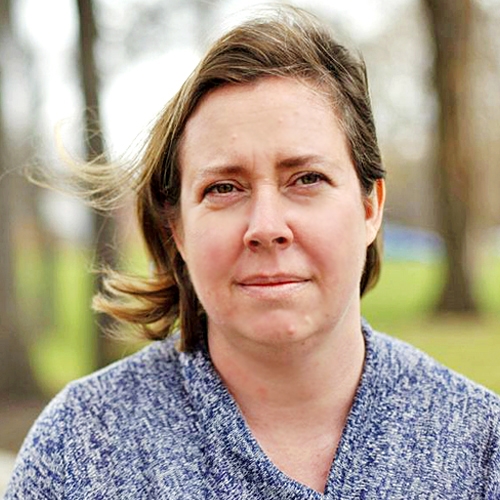

Michelle Pensa Branco MPH IBCLC is a lactation consultant and public health advocate. In addition to her clinical practice, which has included in-hospital, outpatient and private practice settings, she advocates for improved maternal-child health practices at the local, national and global level. She has a particular interest in the impact of trauma to breastfeeding families, models of peer support to improve breastfeeding outcomes and the application of health communication principles to the promotion and protection of breastfeeding. Michelle serves as the Director of Peer Support Programs and provides clinical lactation expertise for Nurture Project International, the only international NGO focused exclusively on infant feeding in emergencies. With Jodine Chase, she co-founded a Canadian non-profit organization, SafelyFed Canada. She is also an active member of the Ontario Public Health Association’s Breastfeeding Promotion Working Group. Michelle has previously served as the Vice-Chair of La Leche League Canada, the Communications Director for the Canadian Lactation Consultants Association as well as the Toronto Coordinator of INFACT Canada. When she is not travelling for work, Michelle stays close to home, living with her family just outside Toronto, Ontario, Canada.
Topic: Keeping the Fox Out of the Chicken Coop: Safeguarding Your Reputation Against Baby Feeding Industry Influence - [View Abstract]
Topic: Playing Well with Others: Collaborating in High Conflict/Low Trust Settings - [View Abstract]
Topic: Watching Our Words: Is Risk-Based Language Always the Right Choice? - [View Abstract]
Objective 1: Describe the target groups for infant and young child feeding in emergencies (IYCF-E) interventions
Objective 2: List two key documents that provide guidance on IYCF-E
Objective 3: Explain one way in which breastfeeding practices are eroded during an emergency
In emergencies, breastfeeding saves lives - and yet, regardless of the location or type of disaster, breastfeeding and complementary feeding practices are eroded during an emergency. Infant and young child feeding in emergencies (IYCF-E) requires a multi-sectoral approach to meet the needs of both breastfed and non-breastfed children. Where do the skills of breastfeeding counsellors, educators and IBCLCs fit into the IYCF-E response? What competencies do IBCLCs need to provide clinical care in a humanitarian setting and how can IBCLCs obtain those (if they don’t already have them)? Bring your thoughts, experiences and questions and join us for a facilitated discussion about the role of skilled breastfeeding support in protecting infants and young children in emergencies.


Christy Jo has over 25 years of teaching experience. She is passionate about teaching in ways that simplify learning. She has been awarded the United States Presidential Volunteer Award for her community service, the Phyllis Klaus Founder's Award for her contribution to the Mother/Baby bond and the Above and Beyond Award for innovative projects that exemplify the mission of Public Health. She has also been named Lactation Educator Faculty of the Year from Childbirth and Postpartum Professionals Association and earned their Visionary Award in 2015. Christy Jo is the author of Mommy Feeds Baby and co-author of Making Milk. She created the Grow Our Own Lactation Consultant/IBCLC Prep Course which has been used to train hundreds of students to become Lactation Consultants. She currently resides in California with her husband and three children. She continues to serve her community as a birth doula, Private Practice IBCLC, Health Educator for Public Health, and faculty for the CAPPA CLE© and Childbirth Educator Programs.
Topic: Enhanced Counseling Skills for the Lactation Educator - [View Abstract]
Topic: Expanding Our Audience to Gain Greater Appreciation and Acceptance of Breastfeeding - [View Abstract]
Topic: Sharing Your Wisdom: From Abstract Idea to Awesome Prenatal Breastfeeding Class - [View Abstract]
Topic: The Art of Communication: Simplifying Birth and Breastfeeding - [View Abstract]
At the conclusion of the course, the attendees will be able to:
1. List three-six concepts to teach in a prenatal breastfeeding class
2. List at least one way to appeal to the visual, kinesthetic and auditory learner
3. List three activities to incorporate into a prenatal breastfeeding class
Get that idea of creating a prenatal breastfeeding class out of your head and make it a reality! You have wisdom to share, but how do you share it in a way that captures parents’ attention and appeals to different learning styles? In this interactive presentation, I’ll guide you through the process of creating a prenatal breastfeeding class. Join in as we work with tools and handouts that will help you create a prenatal breastfeeding class that meets the goal of setting parents up for breastfeeding success!
Accreditation
CERPs - Continuing Education Recognition Points
Applicable to IBCLC Lactation Consultants, Certified Lactation Consultants (CLCs), CBEs, CLE, Doulas & Birth Educators. GOLD Conferences has been designated as a Long Term Provider of CERPs by the IBLCE--Approval #CLT114-07.
This program is approved for 32.5 CERPs (27.5 L-CERPs, 3 R-CERPs, 2 E-CERPs).
Midwifery CEUs (MEAC Schools):
This program is accredited through the Midwifery Education & Accreditation Council (MEAC) and is approved for 28 Hours, the equivalent of 2.8 CEUs. Please note that 0.1 MEAC Midwifery CEU is equivalent to 1.0 NARM CEUs.
Additional Details
Viewing Time: 8 Weeks
Tags / Categories
(IBCLC) Clinical Skills, (IBCLC) Development and Nutrition, (IBCLC) Education and Communication, (IBCLC) Equipment and Technology, (IBCLC) Ethical and Legal Issues, (IBCLC) Infant, (IBCLC) Infant, (IBCLC) Maternal, (IBCLC) Maternal, (IBCLC) Pharmacology and Toxicology, (IBCLC) Physiology and Endocrinology, (IBCLC) Psychology, Sociology, and Anthropology, (IBCLC) Techniques, Birth Practices & Breastfeeding, Bodywork to Support Breastfeeding, Breastfeeding Advocacy, Breastfeeding Complications, Breastfeeding Education, Breastfeeding in Emergencies, Breastfeeding Strategies for the Preterm Infant, Breastfeeding Support, Breastmilk / Human Milk, Donor Human Milk for Preterm Infants, Drug & Alcohol Use, Ethics for Lactation Professionals, Family & Social Support, Fathers in Perinatal Care, Hypoplasia/Insufficient Glandular Tissue, IBCLC & International Code on the Marketing of Breast Milk Substitutes, IBCLC in Private Practice, IBCLC Using Research, Induced Lactation & Relactation, Inequalities & Breastfeeding, Infant Anatomy & Physiology, Lactation & Breastfeeding, Lactation Case Studies, Legal Issues & Breastfeeding, LGBTQIA2S Families & Breastfeeding, Managing Milk Supply, Maternal & Infant Assessment, Medications & Herbs, Sexual Health, Social Media for HC Professionals
How much time do I have to view the presentations?
- The viewing time will be specified for each product. When you purchase multiple items in your cart, the viewing time becomes CUMULATIVE. Ex. Lecture 1= 2 weeks and Lecture Pack 2 = 4 Weeks, you will have a total of 6 weeks viewing time for ALL the presentations made in that purchase.
- Time for viewing the talks begins once you purchase the product. For Live Webinars & Symposiums, the viewing period begins from when the live event takes place. Presentations can be accessed 24/7 and can be viewed as many times as you like during the viewing period.
What are bundled lectures?
- Presentations may be available individually or via a bundled package. Bundled lectures are a set of lectures that have been put together based on a specific category or topic. Some lectures will be available in both individual and lecture form, whereas others will be available only via a bundled lecture pack.
Will there be Handouts?
- YES! Each lecture comes with a PDF handout provided by the Speaker.
Some lectures include a Q&A, what does that mean?
- During our online conferences, presentations that occur live are also followed by a short 15 minute Question & Answer Session. The Speaker addresses questions that were posted by Delegates during the presentation. We include the recording of these Q&A Sessions as a bonus for you.
How can I receive a Certificate?
- If this presentation offers a certificate, once you are done viewing the lecture or the lectures within a bundle, submit your attendance record in order to be able to download your certificate. You'll be able to see which credits are offered for the lecture by hovering over the "Credits Available" link within the "Speakers & Topics" tab.
Professionals that selected this package also viewed

|
|

|


















